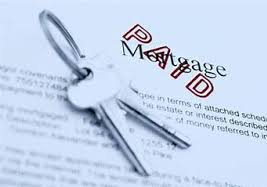Thinking about paying off your mortgage early? Here are the positives— and the negatives.
Benefits of early mortgage payoff
Paying a mortgage off early frees up a large sum of money every month. A study by LendingTree in early 2020 revealed that Americans hold $10.5 trillion in total mortgage debt, with 62 percent of homeowners carrying a mortgage. Also, nearly a 1/4 of Americans have less than $5,000 saved for retirement. Homeowners could redirect money previously saved for the mortgage into retirement savings. Eliminating a mortgage payment also means you’ll need less income to cover your daily expenses in retirement.
Early payoff can also result in paying less in interest during the life of the loan. Also, it can provide homeowners with an asset that could be used when needed. Some homeowners open a home equity line of credit (HELOC), which serves as their emergency fund and can be used for major expenses.
Risks to consider
There are drawbacks to early payoff, however. The general rule of thumb is to keep three to six months’ worth of expenses in an emergency fund. Paying off a large sum toward your mortgage could deplete your reserves and leave you cash poor in the event of an emergency.
Paying off your mortgage eliminates the option to take a tax deduction on the interest you paid on the loan, resulting in a higher annual tax bill. You could also miss out on potential opportunities to invest the money in other savings vehicles that are experiencing high growth.
Potential strategies and mistakes to avoid
There are a few ways to shorten the life of your loan. The first option is to pay one lump sum that covers the remaining balance. Before doing so it’s crucial to ask your lender if a prepayment penalty applies. The amount of a potential prepayment penalty varies by the lender but could range from 2 to 5 percent of the total loan balance, which can get expensive.
You might also choose to chip away at the balance, paying a little extra each month or making an additional payment if you are able to. But, Be sure to direct the payment to the principal of the loan. If you don’t, it could end up being applied to interest and won’t accelerate the payoff process.
In some cases, refinancing might allow you to shorten the life of the loan. As an example, if you have 23 years left on a 30-year mortgage, you could refinance to a 15-year loan. Current low interest rates might even mean your monthly payment stays about the same.
While it sounds counter intuitive to the goal of early payoff, you also might look at taking advantage of low interest rates by refinancing to a new 30-year loan. Using this strategy, you lock in a lower monthly payment but make extra payments toward the principal. But it’s important to consider your age and likelihood of not paying off your new mortgage early before refinancing to a new 30-year loan.
Before looking into these strategies, it’s always a good idea to talk to a financial adviser. They can help guide you through the pros and cons and show you how each scenario could potentially impact your financial picture, both now and in retirement. They might even have ideas on how you can combine strategies to potentially pay off your mortgage and more efficiently put your money to work for you.


